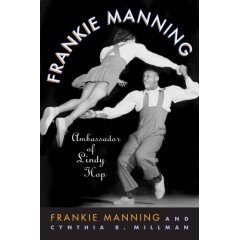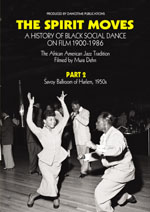Lindy Hop: Moonbeams and Swing Fiends
Lindy Hop was the name given to an original form of urban dancing of Afro-American creation. Its categorized as swing dancing , yet Lindy Hop was an innovative variant that took the genre to a new level. The Harlem ghetto of the 1920′s and 1930′s and in particualr the Savoy Club was the focal point. It was the first expression of popular street culture in America that was articulated by non-whites. Like rap and hip hop it transcended color barriers and brought people together by creating an art form of semi-mystical proportions that went against orthodoxy and a commonsense world view. Lindy Hop expanded on the temporal and spatial sense of popular dance at the time.
African Americans increasingly migrated to northern cities after the Civil War bringing rural traditions of folk dancing and gospel alongside elements of African social dance culture. These influences were absorbed with Jazz and dancing styles such as the Jitterbug and Charleston. Almost by morphic resonance the same creative spirit was taking form in Europe through the Gypsy and Eastern European currents in the music of Django Reinhart and Stephane Grappelli from their ”Quintette du Hot Club du France” in Paris. The excitement of classic Lindy Hop was due to its improvisations being fused with the rigor of the eight-count structure of European partner dances.
The passing of Lindy pioneer Frank Manning on April 30 th. at age 94 is a reminder that Lindy Hop was an art form that brought people together and broke the color barrier. Manning popularized the dance with the innovation of ”air steps” in what is known as the ”Savoy style” of Lindy Hop which is characterized by flips, lifts and aerials. The name Lindy ”Hop” is a bit of a misnomer since the style is very smooth with no hopping or prancing. Manning was also an excellent choreographer as seen by his orchestration of the dance sequence in ”Hellzapoppin”.
Is the Lindy Hop art in that it flirts with the category of modern dance? The creation and then refinement of the form by Manning and others helped it establish an enduring structure and norms. It can be axiomed that any creative moment involves a submersion of the ego to a state of innocence. And at that time every place is ”here” and every moment is ”now”. In this sense , the creation of the Lindy Hoppers is no less real or authentic than abstract painting was in post -war America. This is after you eliminate the social context of Lindy which forces a judgement on the dance as a leisure activity or folk pastime. At a performance level Lindy is modern dance without being enshrined within a dance company.
